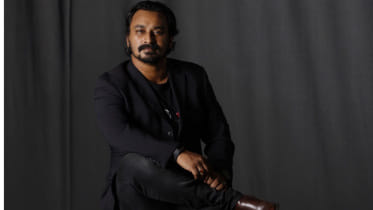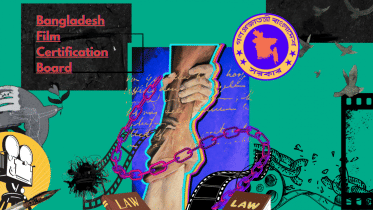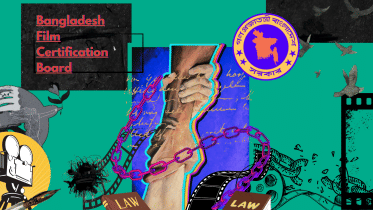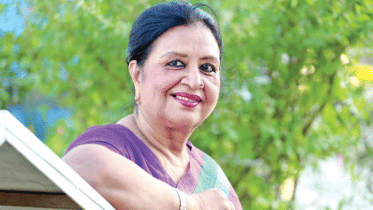Bangladesh Film Certification Board
‘Manusher Bagan’ becomes first film of 2026 to receive censor certificate
Impress Telefilm Ltd's upcoming film “Manusher Bagan” has become the first movie of 2026 to receive certification from the Bangladesh Film Certification Board. The film, directed by Nurul Alam Atique, has now officially cleared the censor process and is set for theatrical release soon.
12 February 2026, 15:48 PM
Film Certification Board reformed with Prince Mahmud, Rafiqul Anowar Russell
The move follows controversy over the board’s earlier composition, announced on January 14, 2026. Two previously named members, film editor Iqbal Ehsanul Kabir and director Khijir Hayat Khan—who resigned—were omitted from the new board.
9 February 2026, 17:11 PM
Khijir Hayat Khan seeks exemption again from Film Certification Board
In his application, Khan clarified that the circumstances and structural framework under which he had previously resigned remain unchanged.
20 January 2026, 12:02 PM
Reconstituted Bangladesh Film Certification Board formed
The board also includes film editor Iqbal Ehsanul Kabir, film director Khijir Hayat Khan, film actress Quazi Nawshaba Ahmed, and film director Tasmiah Afrin Mou as members, alongside the Vice-Chairman of the Bangladesh Film Certification Board, Dhaka.
17 January 2026, 20:50 PM
Film Certification Board clears all applications, certifies 94 films since September
Among the approved titles are 38 full-length Bengali films and 29 English-language features. Additionally, 12 short films and 15 documentaries received clearance for public exhibition during the same period.
19 June 2025, 13:35 PM
‘Chokkor 302’ gets censorship clearance, release date to be announced soon
Filmmaker Saraf Ahmed Zibon’s debut venture, “Chokkor 302”, has secured clearance for theatrical release. Backed by government funding, the film has successfully obtained certification from the Bangladesh Film Certification Board without requiring any edits.
4 January 2025, 07:35 AM
Khijir Hayat Khan resigns from Film Certification Board
The Bangladesh Film Certification Board, restructured and renamed in September after being reformed in August, included filmmaker Khijir Hayat Khan as one of its 15 members. However, Khan stepped down in November, just three weeks after its formation.
4 December 2024, 11:19 AM
Film Certification Board: Ambitious plans, lingering challenges
In an effort to understand the challenges and tentative guidelines, The Daily Star reached out to board members and stakeholders. Their insights highlight the complexities of transitioning from the long-standing censor board to a modern certification body.
22 November 2024, 18:05 PM
The challenges the film certification board faces
Hopeful outcomes from the new establishment will take months or years of work, research and the final formation of the act and its accompanying set of rules.
31 October 2024, 02:00 AM
Anonno Mamun’s ‘Makeup’ faces new ban by Appeals Committee
Following this rejection, the film is officially uncertified and banned from public exhibition throughout Bangladesh. Any unauthorized screening of the film will result in confiscation, and those involved may face legal action. This order is effective immediately.
27 October 2024, 13:17 PM
Authorities ban two Bangladeshi films amid 'cut-piece' clip crackdown
The resurgence of "cut-piece" (short clips with explicit content meshed into Bangladeshi films) clips in Bangladeshi cinema, once a hallmark of its "dark age," has prompted a crackdown by authorities, not too long ago. These explicit and provocative scenes tied into mainstream films alienated audiences, tarnishing the industry’s reputation, especially in the post-2000 era.
17 October 2024, 07:25 AM
Newly formed certification board conducts first film screenings
The newly established Film Certification Board held its inaugural screening on Monday, September 30, showcasing two films — “Bhoyal” and “Rajkumari”.
1 October 2024, 06:55 AM
Shabnam declines offer to join Bangladesh Film Certification Board
Veteran actress Shabnam was approached to become a member of the new committee of the Bangladesh Film Certification Board. She asked for two days to consider the offer but later graciously declined, citing her inability and disinterest in taking on the role.
22 September 2024, 10:24 AM















